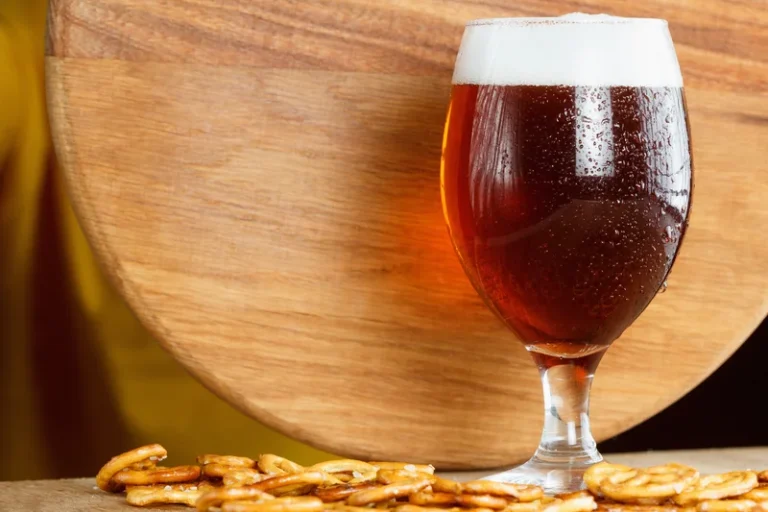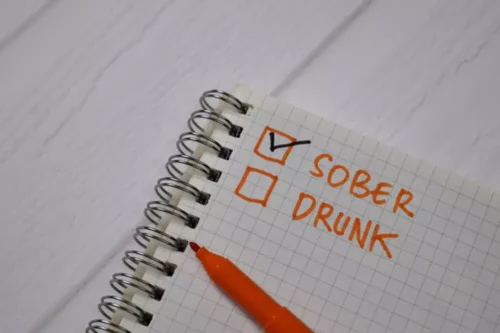The Clean, Sober Diet: Tips for Eating Well in Recovery FHE Health
by 24@Help

Getting in enough nutrients through the adequate intake of food and fluids can offer several benefits both during and after the alcohol detoxification process. Even so, it’s important to take steps to avoid becoming too dehydrated or malnourished during detox, whether that involves finding a medical detox program or eating a balanced diet at home. They’re likely cooked in unhealthy fats, like saturated and trans fats, and aren’t very nutritious. People experiencing alcohol withdrawal may lose fluids through vomiting, sweating and diarrhea.
Eat more leafy greens and boost your immune system with this 7-day meal plan
Whole grains, protein, and generally nutrient-rich foods are the best foods for alcohol detox. Complex carbs like whole grains and potatoes help prevent swings in blood sugar that can trigger cravings. Complex carbs are also needed to make serotonin, which boosts mood and curbs cravings. Amino acids in certain proteins are also used to make dopamine and serotonin, the brain chemicals that most directly influence cravings. Chicken, turkey, soy and pumpkin seeds are good sources of amino acids.

More on Substance Abuse and Addiction
(Be sure to check out the Kitchenistic review of “avocado savers.”) People who eat a lot of these foods every day rarely have cravings for carbs and junk. You already know that it’s impossible to succeed in quitting drinking if your only new thought process is “don’t drink.” The same basic truth holds for diet. You’ll never quit eating bad foods if you don’t choose viable (and delicious) alternatives. It’s imperative to correct your body’s imbalance during recovery through nutrition. Giving your body the proper nutrients, and therefore energy it needs helps with mental, physical and emotional improvements.
- This can make it hard to stay away from alcohol while you’re trying to get better.
- This diet will give you the necessary vitamins and nutrients to build your body’s stores.
Nutritional Therapy for Alcohol Addiction
Having enough protein can help reduce withdrawal symptoms such as nausea, headache, and fatigue. One critical nutrition and recovery tip is to consider not only what you’re eating, but also how and when. Intermittent fasting means you’ll only eat one or two meals a day, restricting these meals to certain time periods. Autophagy is a best foods for alcohol recovery bodily process that helps clean up damaged proteins throughout your body and replaces them with healthy amino acids. As you’ve likely heard, heavy alcohol consumption can be damaging to your brain. And since your brain needs certain fatty acids to function optimally, eating enough good fats is key in a healthy diet for alcoholics.

Nutrient-Dense Snack Options for Alcohol Recovery
To stay in recovery and live a healthier, happier life, you need to try other things. You can see a counselor to learn how to manage stress, join a support group to talk to others who understand what you’re going through, and get regular exercise to stay healthy and lower anxiety. While I am not a nutritionist myself, there are certain foods research has demonstrated to effectively support the alcohol recovery process through all stages of recovery. These top five foods that aid in alcohol recovery are foods to prioritize as you return to physical and mental wellness. Because alcohol can slow down or even stop the absorption of nutrients, you can expect to deal with nutritional deficiencies if you continue to drink heavily. For example, you may lack adequate levels of vitamin A in your system, which can lead to vision impairment and dry skin.
Eating light meals or focusing on eating snacks throughout the day instead of big meals may help support physical recovery while dealing with the loss of appetite or nausea. There hasn’t been a lot of research on the role of nutritional therapy in recovery from substance use yet. That said, some studies have found that it can boost your chances for a successful recovery. Other research shows that thorough nutrition education can improve the odds that you’ll still be sober after 3 months. This makes you less hungry for food, so there’s a higher chance you’ll skip meals or choose foods that are low in nutrients. However, certain food groups also have benefits when it comes to helping with the discomfort of withdrawal symptoms and detoxification.

Carotenoids act as antioxidants that fight free radicals, including alcohol toxins. A diet high in colorful fruits and veggies can flush alcohol from your body more quickly, and provide you with countless nutrients that can accelerate your recovery. In addition to supplements for alcohol cravings, there are several prescription medications that can help you cut back or quit drinking. Naltrexone can help retrain your brain to be less interested in alcohol over time, while acamprosate, baclofen, gabapentin, and topiramate can all help reduce cravings for alcohol.
Why Does Alcohol Withdrawal Cause Food Cravings?
In a perfect world, a good diet could prevent relapse, but this unfortunately isn’t true. There’s no one way to prevent relapse and, sadly, around 40 to 60 percent of recovering substance users will relapse at least once before finally getting clean. If you’re on a mission to beat alcohol forever, be sure to resolve your all of your Missing Links in the Hierarchy of Alcohol Recovery. I prefer to use coconut milk instead of regular milk because it contains no sugar; milk contains a hefty dose of lactose. While I do not have any sensitivity to dairy, I’ve noticed that drinking lots of milk causes me to gain weight. For this reason, I do use organic milk during periods in which I’m trying to gain muscle and strength.
How Doctors and Nutritionists Can Help
Recommended Posts
Drug & Alcohol Rehabs in California: Finding a California Rehab
September 28, 2022
Виды игровых аппаратов в виртуальных казино
June 6, 2025